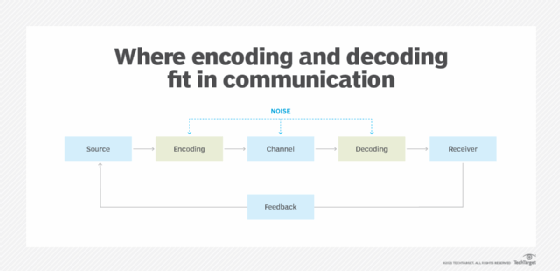digital television (DTV)
What is digital television (DTV)?
Digital television (DTV) is the transmission of television signals using a digital broadcast format rather than conventional analog methods.
In the United States, analog television broadcasts stopped in 2009 and people who had used antennas for "over the air" transmission were required to use a digital set-top box to convert transmissions. Today, with the growing affordability of digital televisions, most analog television sets have been replaced.
How does DTV work?
Digital television uses digital compression to convert digital signals into digital packets of data, which are then transmitted over the air or via cable or satellite.
The digital signal can be received by a digital TV antenna, cable box or satellite receiver -- depending on the type of service being used. The digital signal is decoded and converted back into an analog form before it is displayed on the viewer's screen.

What are the benefits of DTV?
Compared to analog television, DTV offers improved picture quality, multiple channels of programming on the same frequency, special features such as digital video recording (DVR) capabilities and interactive features like digital program guides (EPGs).
For broadcasters, DTV uses digital compression which reduces the amount of bandwidth required for transmission, making it more efficient and allowing for high-definition broadcasts. It also enables broadcasters to add digital subchannels, which gives viewers access to additional programming options.
With digital television, there are often multiple channels of the same broadcaster available on one frequency. For example, with digital multicasting, a single broadcast station will be able to transmit multiple standard and high-definition digital channels simultaneously.
For viewers, digital television typically provides a better overall viewing experience with sharper colors and a crisp picture. Furthermore, digital televisions do not require an antenna or cable service subscription to be used. They can connect directly to streaming services such as Netflix or Hulu Plus via Wi-Fi or other internet connection options.
DTV vs. HDTV
Digital television and high-definition television (HDTV) are often confused. However, digital television is only part of the HDTV picture.
DTV refers to digital broadcasting technology while HDTV is an advanced digital broadcast format with higher resolution than standard digital broadcasts. It requires both digital broadcast technology as well as a compatible TV set capable of decoding the digital signal and displaying it in high definition.
Therefore, DTV is required for any type of digital broadcasting transmission while you must have both DTV and a compatible HDTV set to take advantage of HD programming.
See also: streaming video, streaming media, orthogonal frequency-division multiplexing (OFDM), ATV (advanced television), Internet Protocol television, UHDTV , subcarrier, interlaced display, non-interlaced display and pixel.
